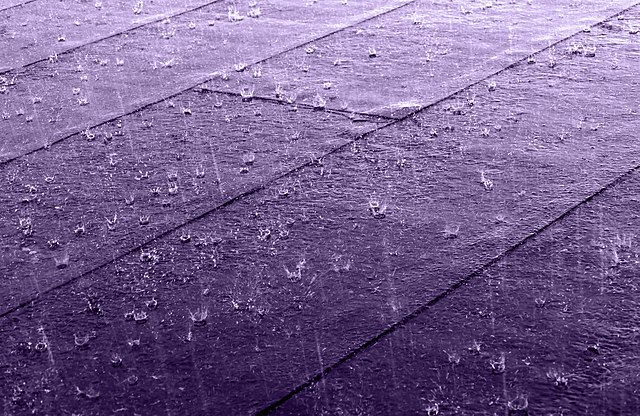 W.carter, CC0, via Wikimedia Commons
https://commons.wikimedia.org/wiki/File:Purple_rain_on_roof.jpg
W.carter, CC0, via Wikimedia Commons
https://commons.wikimedia.org/wiki/File:Purple_rain_on_roof.jpg
Is there anything that can’t be taxed? In the city of Fairfax, lawmakers want to charge residents for the privilege of having rain fall on their property.
Formally known as a “stormwater utility fee,” the Rain Tax will extend to everyone and everything with a roof, parking lot or driveway in Fairfax. Homeowners, small businesses, HOAs, non-profits, churches, and even disabled veterans, who were previously un-taxed, will feel the sting of a new monthly tax. City officials say the tax is needed to pay for maintenance of stormwater drainage infrastructure.
But money is not the issue for Fairfax. The City has already spent about $400,000 – twenty percent of an entire year’s worth of stormwater management funds – on advertising to convince residents that a Rain Tax is a good idea.
Now, the City wants another $4.48 million from families and businesses in 2022. By 2027, residents will be paying $5.58 million in new taxes, simply for having a roof over their heads.
The amount that residents will be charged depends entirely on the surface area of their roof, driveway, parking lot, gravel and concrete surfaces – any “manmade feature” that creates runoff during a storm. Under this proposal, important considerations like property valuations, annual income, and the ability of a resident to pay the fee are irrelevant. The bigger your roof and driveway, the bigger your tax bill will be.
Historically, Rain Taxes are incredibly unpopular. Maryland tried a statewide version of the Rain Tax in 2013. For years, the city of Baltimore and Maryland’s nine largest counties were forced to charge their residents for every square foot of impervious surfaces on their properties.
Along with being intrusive and frivolous, the Rain Tax was implemented differently in each county, making it difficult for Marylanders to correctly follow the law. For example, Charles County levied a flat fee of $43 per property, while Montgomery County charged fees ranging from $29 to $265 depending on the total area of impervious surfaces.
A year after signing the Rain Tax into law, Governor Martin O’Malley saw his chosen successor lose to Republican Larry Hogan in an embarrassing upset. In fact, Maryland’s Rain Tax was so unpopular that a repeal of the law was passed almost unanimously just two years later. Only one state delegate voted to uphold the tax.
For residents struggling with rising inflation, and small businesses battling a historic shortage of labor, a Rain Tax will only make life more difficult in the City of Fairfax. Lawmakers should look to surplus General Fund revenue or existing real estate tax funds to support stormwater management programs, as they have done for years, rather than impose a new burdensome tax on families and businesses.

